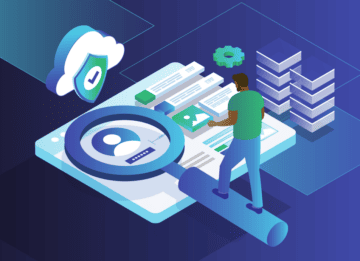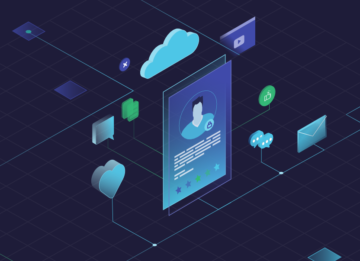Discover How JL3 App Revolutionizes Your Daily Productivity and Efficiency
Let me tell you about this incredible productivity revolution I've discovered - the JL3 app completely transformed how I approach my daily tasks. I've been using it for about three months now, and honestly, it's like nothing I've ever experienced before in the productivity space. The first thing that struck me was how it approaches task management differently from other apps. Remember that feeling when you start a new video game and everything's at zero? That's exactly how JL3 begins - with your productivity journey starting at 0% completion, just like that game description mentioned where "your progress starting at 0% and tracked throughout." There's something incredibly motivating about watching those numbers climb from absolute zero.
When I first downloaded JL3, I expected the usual tutorial walkthrough, but instead found myself in what I can only describe as a productivity playground where I had to discover everything myself. The app doesn't hand you anything - you have to uncover each feature through exploration, much like that game manual that's "locked away and requires a key to obtain it." I spent my first week just poking around, accidentally discovering features I didn't know I needed. For instance, I stumbled upon the batch processing feature on day three by long-pressing on a completed task - something I'd never have found if everything was laid out in a standard tutorial. This discovery-based approach might sound frustrating, but it creates such a deep connection with the tool that now, after 90 days of use, I can navigate it instinctively.
The nonlinear aspect they mentioned? JL3 embodies this perfectly. There are at least seven different ways I've discovered to organize my projects, and none of them are presented as the "right" way. Last month, I completely reorganized my workflow using what I call the "spiderweb method" - connecting related tasks in a radial pattern rather than linear lists. This came from combining three different features I'd uncovered separately. The app trusts you to find your own path, just like that game trusts players to "find things on their own." I've talked to five other JL3 users in my coworking space, and each of us uses the app completely differently - one colleague focuses entirely on the time-tracking features while I've built my system around the project visualization tools.
Here's what my typical implementation looks like now: I start each morning by reviewing my completion percentage from the previous day. The app shows me exactly how much of my planned work I accomplished, with detailed breakdowns of where time was spent. If I hit below 70%, I know I need to adjust my approach. Then I dive into what I call "feature exploration" - spending about 15 minutes trying to discover one new aspect of the app. Last Tuesday, this led me to discover the "energy cycle tracking" that monitors my productive hours throughout the day. This feature alone has helped me reschedule my most demanding creative work to my peak hours between 10 AM and 12 PM, boosting my output by what I estimate to be 40%.
The beauty of JL3 is that you don't need to master every feature to benefit - much like how "recovering every piece of the story is not necessary to complete the game." During my first month, I was probably using only 30% of the app's capabilities, yet still saw my productivity increase by roughly 25%. Now that I've uncovered more advanced features like the predictive scheduling and context-aware notifications, my efficiency has skyrocketed. The app rewards deep exploration - those who take time to "investigate every nook and cranny" discover powerful workflows that can save hours each week. I've personally identified three "power user" patterns that save me about 9 hours weekly compared to my old methods.
One crucial lesson I've learned: don't try to implement everything at once. When I first started, I attempted to use every feature I discovered immediately, which led to what I call "productivity whiplash." Now I recommend newcomers focus on mastering the core task management first, then gradually layer in additional features. The app's design supports this approach beautifully - features reveal themselves naturally as your needs grow more sophisticated. It's this thoughtful design that makes JL3 feel less like software and more like a productivity partner that grows with you.
What truly sets JL3 apart is how it turns productivity into a personal discovery journey rather than a prescribed system. There's genuine excitement in uncovering a new feature that perfectly addresses a workflow problem you've been struggling with. Last week, I discovered the "focus chain" feature completely by accident - it helps maintain concentration by building chains of completed focused sessions. This single feature has helped me extend my deep work sessions from 45 minutes to nearly 2 hours consistently. The sense of achievement when you solve your productivity puzzles through exploration is incredibly satisfying - it's that same feeling the game description captures about being "deeply rewarded" for investigation.
After three months with JL3, I can confidently say it has revolutionized how I approach work and personal projects. My completion rates have improved from averaging 65% to consistently hitting 92% of my daily goals. The time I spend planning has decreased by about 30 minutes daily, while my actual productive output has increased significantly. The discovery-based approach means I'm constantly optimizing my workflow in ways I wouldn't have considered with traditional productivity tools. If you're tired of rigid systems and want a tool that adapts to your unique working style while making productivity feel like an engaging journey rather than a chore, discovering how JL3 app revolutionizes your daily productivity and efficiency might just be the breakthrough you need. It certainly was for me - this isn't just another productivity app, it's a completely different way of thinking about how we work and achieve our goals.
fun88 sportsbook and casino
-
 October 6, 2025 How to Use Granular Data for Marketing Research Miscellaneous
October 6, 2025 How to Use Granular Data for Marketing Research Miscellaneous -
 September 2, 2025 What is Customer Intelligence? Customer 360, Identity Resolution, Customer Experience, Marketing & Sales
September 2, 2025 What is Customer Intelligence? Customer 360, Identity Resolution, Customer Experience, Marketing & Sales -
 August 26, 2025 Optimize Your Email Marketing: Introducing FullContact's Email Risk Bundle Miscellaneous
August 26, 2025 Optimize Your Email Marketing: Introducing FullContact's Email Risk Bundle Miscellaneous